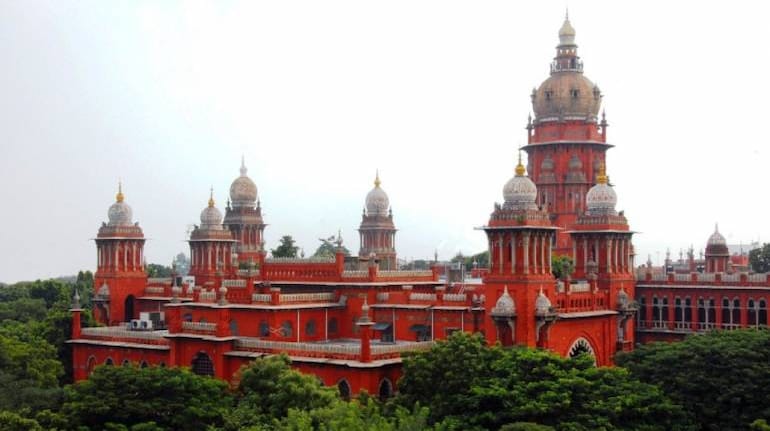



The Madras High Court on April 26 came down hard on the Election Commission of India (ECI) for allowing political rallies as the coronavirus raged and said the poll panel was solely responsible for the second wave of COVID-19 in India.
A bench comprising Chief Justice Sanjib Banerjee and Justice Senthilkumar Ramamoorthy reprimanded ECI for failing to ensure that COVID-19 norms were followed during poll campaigning. The poll body failed to enforce COVID norms regarding on facemasks, use of sanitisers and maintaining social distancing despite court orders, Banerjee said.
"Your officers should be booked on murder charges probably," the Chief Justice was quoted as saying by LiveLaw.
“You are the only institution that is responsible for the situation today. No action against political parties taking rallies despite every order of the court. Your Election Commission should be put up on murder charges probably,” the Chief Justice said.
Tamil Nadu along with Kerala and Puducherry voted for a new assembly on April 6, which was also the day the third and the final phase of voting was held in Assam. The seventh phase of voting for the West Bengal assembly is being held on April 26, with the final round planned for April 29. Votes in these states will be counted on May 2.
Tamil Nadu and Kerala are among the states hit the hardest by the second wave that seen India's daily infections spike to record highs. West Bengal, too, is seeing a big surge in cases.
When the poll panel's counsel said that measures have been taken to curb the spread of COVID-19, the Chief Justice remarked: "Were you on another planet when political rallies were being held?"
Follow our LIVE blog for the latest updates of the novel coronavirus pandemic
The bench directed the ECI and the Tamil Nadu Chief Electoral Officer to come up with a plan on following COVID-19 protocol on the counting day, May 2, after consulting the health secretary.
The blueprint must be handed over on April 30, the bench said. The court warned to stop the counting if the plan was not shared.
Also read | Follow AAP govt circular on not insisting for COVID report during admission: Delhi HC to hospitals
"Public health is of paramount importance and it is distressing that constitutional authorities have to be reminded in such regard. It is only when a citizen survives that he'll be able to enjoy the rights that a democratic republic guarantees", the Chief Justice added.
"The situation now is of survival and protection. Everything else comes next," the Chief Justice said.
Follow our full coverage on COVID-19 here.
Discover the latest Business News, Sensex, and Nifty updates. Obtain Personal Finance insights, tax queries, and expert opinions on Moneycontrol or download the Moneycontrol App to stay updated!
Find the best of Al News in one place, specially curated for you every weekend.
Stay on top of the latest tech trends and biggest startup news.